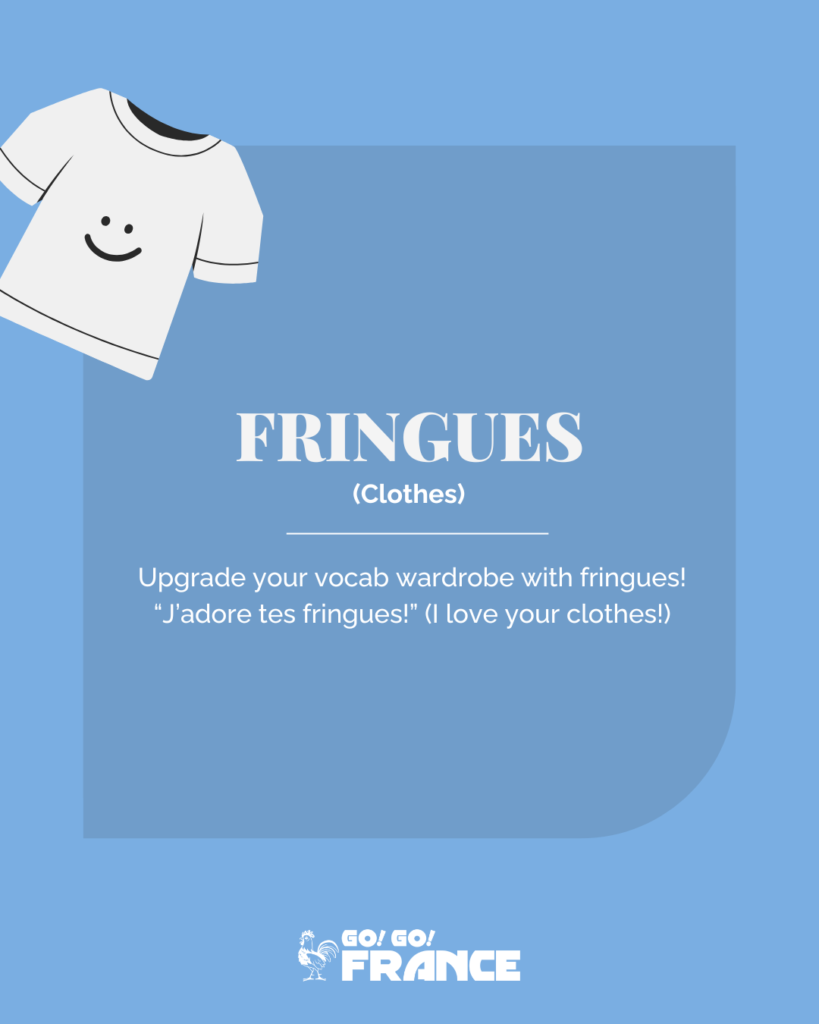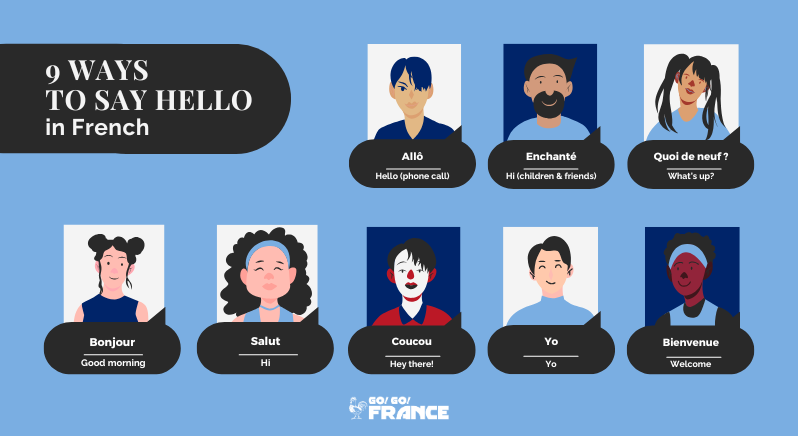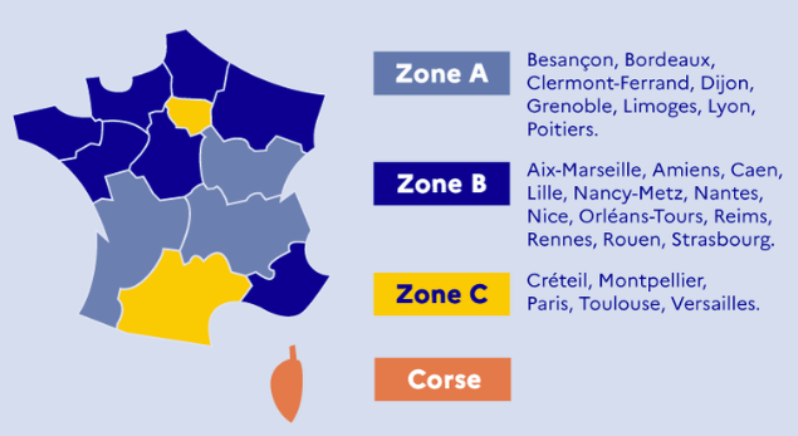French slang, often termed as “l’argot” is not just used by the youth but is peppered throughout everyday conversations among people of all ages.
Let’s dive into the world of French slang and explore its nuances, origins, and applications.
The roots of French slang
French slang, much like its counterparts in other languages, has evolved from various sources and has been shaped by social, cultural, and historical influences.
Some of the slang originates from verlan, a form of French wordplay that involves rearranging syllables, while others have roots in different dialects and languages.

French slang you should learn
- Bouquin (Book)
A bouquin is a much cooler way to talk about a book.
Tu as lu ce bouquin? (Have you read this book?) - Bosser (To work)
Forget travailler, when in France, you bosser!
Je dois bosser demain. (I have to work tomorrow.) - Fringues (Clothes)
Upgrade your vocab wardrobe with fringues!
J’adore tes fringues! (I love your clothes!) - Mec (Guy)
Referring to a guy? Mec is your go-to word.
Ce mec est sympa. (This guy is nice.) - Nana (Girl)
And of course, for girls, say nana.
Cette nana est géniale. (This girl is awesome.) - Ouais (Yeah)
Oui is yes, but ouais is yeah – casual and cool.
Ouais, ça marche. (Yeah, that works.) - Pote (Friend)
Your amis are great, but potes are slang-level buddies.
C’est un de mes potes. (He’s one of my friends.) - Thune (Money)
Cash in your argent for thune in your slang wallet.
Je n’ai pas de thune. (I have no money.) - Baraque (House)
Ditch maison for baraque when talking about houses informally.
Ils ont une grande baraque. (They have a big house.) - Kiffer (To like)
Love liking things? Say kiffer!
Je kiffe ce film! (I love this movie!)

Slang words from one region to another
French slang isn’t universal and can vary significantly from one region to another. For instance, the slang used in Paris might be different from that used in Marseille or in French-speaking countries like Belgium and Canada.
The impact of technology on French slang
In the digital age, technology has significantly influenced the evolution and dissemination of slang, and French is no exception.
The internet, social media platforms, and messaging apps have become hotbeds for the creation and spread of new slang terms among the French, especially the younger generation.
SMS
With the advent of text messaging, a new form of French slang, often referred to as “Langage SMS” has emerged. It involves abbreviating words and using numerals for sounds to keep messages short and swift. For example, “C” is used for “C’est” (it is), and “2m1” represents “demain” (tomorrow).
Internet slang
Online platforms have given rise to a plethora of slang terms and acronyms that are widely used in digital communications. For instance, “mdr” (mort de rire) is akin to “lol” in English, expressing laughter.
Anglicisms
The global influence of English, particularly through technology and pop culture, has led to the incorporation of English words into French slang. Terms like “cool,” “fun,” and “weekend” are commonly used in informal French conversations.
Emojis
The use of emojis and symbols to convey emotions, reactions, and responses is prevalent in digital communication. For example, “😂” is widely used to indicate laughter, while “👍” signifies approval.

Want delve deeper into the nuances of the French language? Visit our Go! Go! France blog.











